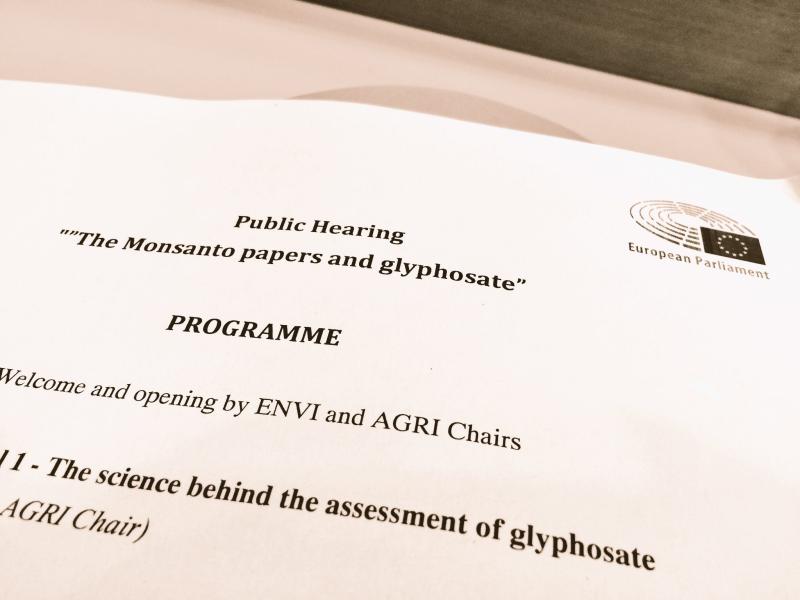Farm groups warn 'science must come first' as key glyphosate hearings take place

A farming group has said "science must come first" in EU decisions concerning the authorisation of pesticides and plant protection products, or risk losing competitiveness.
Farming bodies across the EU, including the UK, have stepped up action to call for glyphosate to be re-authorised for fifteen years after the European Food Safety Authority (EFSA) gave a positive assessment.
Ahead of key talks commencing today (11 October), farming groups including COCERAL, Copa and Cogeca and the NFU have called on EU Member States to re-authorise the use of glyphosate.
Cooperative Copa and Cogeca explained that science must come first in EU decisions concerning authorisation of plant protection products (PPPs) on the market and that sufficient supplies of PPPs on the market are secured.
Copa and Cogeca Chairman Luc Peeters said: “A priority for us is about crop protection. We need PPPs to put in farmers tool box to ensure that we have a competitive, sustainable sector capable of meeting growing world food demand. Science must come first”.
This was supported by NFU Vice-Chairman Guy Smith, who said: “If we lose key PPPs – glyphosate, neonicotinoid seed treatments – we will lose our competitiveness via a vis non-EU countries.
“We have strong scientific evidence from both the EU food safety and chemicals agencies (EFSA and ECHA) to support the re-authorization of the widely-used weed killer glyphosate for 15 years as there are no safety concerns.”
'Monsanto papers'
The European Parliament’s environment and agriculture committees are holding a highly anticipated public hearing on the so-called “Monsanto papers” and glyphosate, which is expected to further heat up the debate on the controversial chemical substance.
MEPs in the European Parliament decided on 28 September to deny Monsanto’s lobbyists the right to enter the assembly’s buildings because of the company’s refusal to appear before the assembly.
The US agrochemical company has been accused of refusing requests to participate in hearings about the corporation's alleged efforts to influence regulations of glyphosate within the 28-nation bloc.
Despite the controversy, the UN’s Food and Agriculture Organisation (FAO) and the World Health Organisation (WHO) have given the green light to the chemical.
Both organisations have said it is “unlikely to pose a carcinogenic risk to humans from exposure through the diet”.
This decision is in stark contrast to a separate assessment by the WHO’s International Agency for Research on Cancer (IARC), which pointed out that the herbicide solution was “probably carcinogenic to humans”.








